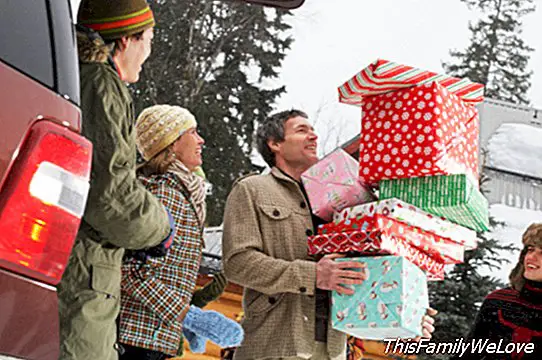Come home this Christmas: tips for travelers
At Christmas there are many families who schedule trips to be with their loved ones, to enjoy the cold and snow practicing winter sports or to take advantage of vacations visiting new places. Especially, if you travel with children, you should plan the trip well and take precautions and safety measures.
To help families to go home this Christmas without frights, the Primary Care pediatricians, from SEPEAP, offer you a series ofTips for travelers useful so that Christmas holidays with children are a pleasant and smooth experience.
Tips for Christmas trips with children and family
1. Plan the trip and discuss it with the children's pediatrician. In case of trips abroad, some type of vaccine may be necessary or some recommendations on local diseases may be useful. A child under 5 is more likely to get sick than an adult on trips over 30 days due to the immaturity of their immune system.
2. Bring the child's health documentation, Vaccination calendars and medical reports in case the child has a chronic illness or take any treatment on a continuous basis.
3. Add a small kit to your luggage with antipyretics, saline solution, rehydration serums, gauze, wound disinfectant (povidone iodine or chlorhexidine), thermometer, and sun protection with 50 protection factor, especially if you go to the mountains or to warm places.

Travel by car, train or plane with children
In case of traveling by car or train:
- Check the vehicle and make sure you have adequate passive safety measures for the characteristics of the children, both in weight and height.
- Dress with comfortable, soft and loose clothing. It is useful to bring your own pillow, a blanket, toys, books, pencils and paper to entertain the children, as well as diapers, a baby change, bottle, pacifier ...
- Includes drinks and food to spare for your trip, besides enough warm clothes. You never know when a snowfall may fall in winter that delays the trip and suppresses some comforts such as heating or nearby power.
In case the trip is by plane:
- After 7 days of life children can travel by plane, but it is advisable to indicate this to the airline in order to enjoy some facilities.
- Avoid getting a child with otitis media on a plane, it is better to wait until your resolution before traveling by plane.
- Milk for the baby can not be pre-mixed with water for security at airports. You can take the milk powder and buy the water after passing the police control.
- Liquid medications as syrups or drops have to be accompanied by the recipe medical
- Precautions for takeoff and landing. The variation of atmospheric pressure during aircraft take-off and landing can cause earaches, nasal obstruction and dizziness in children. To cushion the discomfort, it is advisable to swallow saliva and chew something. For infants under 2 years of age it is helpful to breastfeed them during takeoffs and landings or give them a pacifier, water or juices.
- The Jet Lag It is more difficult when the trip is made from west to east. The most frequent symptoms are: fatigue, disorientation, loss of appetite, mood swings and weakness. Children have greater facility to adapt than adults. To prevent jet lag it is recommended: to sleep on the plane, try to adapt to the schedule of the destination country by exposing yourself to the clarity of the day and resting at night, as well as adapting meal times progressively.
Tips to avoid childhood dizziness on journeys
Dizziness is a disturbance of balance usually caused by travel by boat, car or plane, as well as by moving attractions. In this balance intervene the inner ear, the sight and the osteo-muscular system. When there is a contradiction between these senses, the signal that reaches the brain is confused and dizziness occurs. On boats or in cars this feeling of instability is more frequent, accompanied by digestive alterations and other symptoms such as yawning, nausea, cold sweat, paleness and even vomiting. This sensation may persist even after the movement ceases.
Before 2 years it is very rare to feel dizzy and after 12 years the sensitivity is decreasing, although in some cases it can persist until adulthood. Therefore, we can say that it is an eminently infantile disorder.
These tips can help you avoid getting dizzy on trips:
- Make sure the child does not have a full stomach. Give him drinks and food in small quantities, preferably salty rather than sweet.It is also not advisable to travel on an empty stomach.
- Keep the vehicle well ventilated.
- Try to keep your head still and fix the view at a point far outside the vehicle.
- Prevents the child from doing any activity that forces him to fix his eyes inside the vehicle (read, draw or handle tablets or consoles ...)
- By car, the driving style of the driver influences a lot in the welfare of the passengers. Try not to take fast corners or make sudden changes in speed.
- Travel always looking at the direction of travel.
- In case of traveling by boat, plane or bus, try to place the child in the central part that is the least balanced.
Marisol Nuevo Espín




